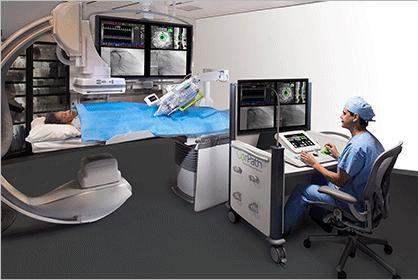
The first percutaneous coronary intervention (PCI) has been carried out from a remote location outside of the catherization lab.
An elective PCI procedure was carried out from a distance of around 32 km away to the five patients at the Apex Heart Institute in Ahmedabad located in the Indian state of Gujarat.
Apex Heart Institute chairman and chief interventional cardiologist Dr Tejas Patel has remotely carried out each procedure from inside the Swaminarayan Akshardham temple in Gandhinagar.
Patel said: “The application of telerobotics in India has the potential to impact a significant number of lives by providing access to care that may not otherwise have been possible.
“For the first time in cardiology’s history, India will shine for this ground-breaking innovation, and I am honored to be a part of this historic occasion.”
Corindus is said to develop world’s first remote telerobotic interventional platform to offer specialized and timely cardiovascular care to remote patient populations.
The firm intends to start commercial product development for use of the CorPath system in remote interventions, based on the success of FIH telerobotic coronary stenting cases carried out in India.
Corindus president and CEO Mark Toland said: “Cardiovascular disease, including stroke, is the world’s most significant and undertreated clinical problem due to limited access to specialized, timely medical care.
“As a result of existing barriers to care, including increased global poverty and a declining number of trained specialists, only a fraction of patients worldwide receives life-saving treatment, resulting in substantial death or disability.”
In September this year, Mayo Clinic demonstrated the first live transmission of a remote robotic procedure using CorPath GRX with developmental remote technology in a porcine model.
Mayo Clinic recently secured a multi-year $3.3m grant from the The Leona M. and Harry B. Helmsley Charitable Trust to study feasibility and practicality of using remote robotic technology for cardiac interventions.






